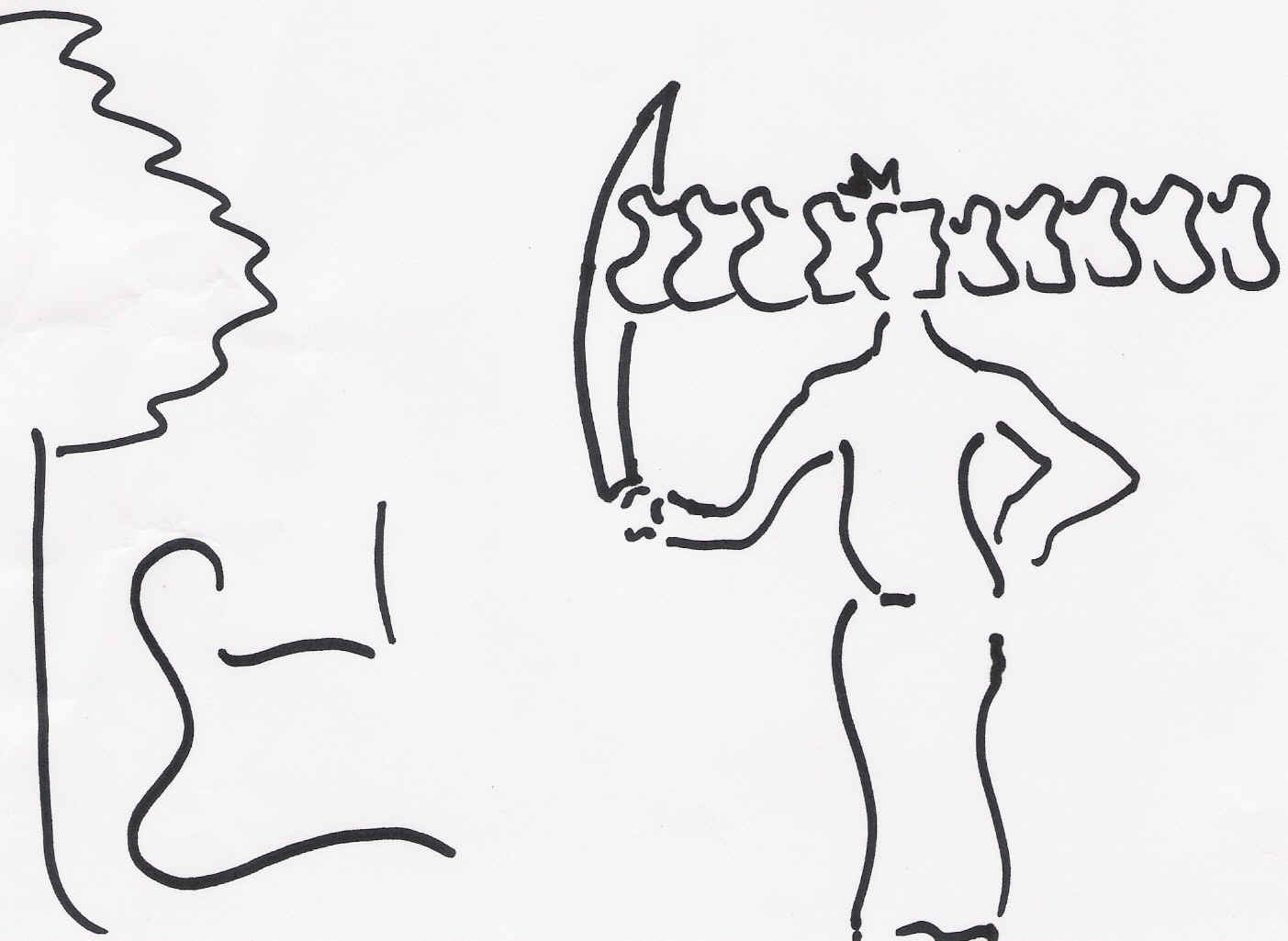
The citizens are happy and proud.
In the past years
the height of Ravan’s effigy
has been increasing.
Now, he is visible from a
radial distance of two kilometers,
even three from the western check post.
The artisans
who raise his structure
of cane and paperboards say
that buses, trucks, cars, two-wheelers
appear to be crawling
when seen from such height.
Even the proud Ram and Lakshman,
who come over in jeans and Pathani suits
to survey him, thinking, we’d kill him tomorrow,
can’t — first and foremost — be recognised
from the height of Ravan’s heads,
and — secondly — look like dwarfs.
It is certain that next year
Ravan will grow all the more taller.
Standing alone on the top he casts
an enormous glance over the whole settlement
with all his ten faces and twenty eyes.
He knows that a crowd of millions
surfaces only to see him, and not
for the sake of Ram and Lakshman who
in their make-up of lipstick and powder
look like cheap women or impotent men,
and who are barely recognisable among
the parliamentarians, MLAs, mayors, collectors
and SPs on the Dussehra maidan.
On the pretext of getting photographed
one of these is often made to shoot
the arrow that assassinates Ravan with fire.
Ravan is least concerned about, or ashamed of, burning.
He knows that people only vie with one another
to arrive before he is set to fire.
Nobody remembers the face of any Ram from any Dussehra.
Lakshman is ignored even more.
But everybody compares
last year’s Ravan with this new one
and is glad to see that this is better than that.
Collapsing in flames
he sees with ten faces and twenty eyes.
To him, every city seems like his golden Lanka.
He keeps getting prepared all year round.
Next year he stands up again, alive.
Again, he looks even further into the distance and below
at his devotees, armies or humans, flat like insects and moths.
Today, he knows he has to act out, once again,
his pantomime of the triumph of good over evil,
then burn with more realism
before returning next year,
having become more vertiginous, more gargantuan.
When every single body part of his, along with his face falls
throbbing from that height a little more in their midst,
both of this year’s sons of Dasharath
along with their bows and armies of monkeys,
hastily take shelter in a protected circle where
the somewhat cowering, somewhat terrorised,
somewhat angered parliamentarian, MLA, mayor,
collector, SP and even honorouble citizens had
already been promptly rallied with their terrified wives
and cowardly priests carrying platters of aarti —
bedecking her after she was set free,
Sita would be brought forth later.




